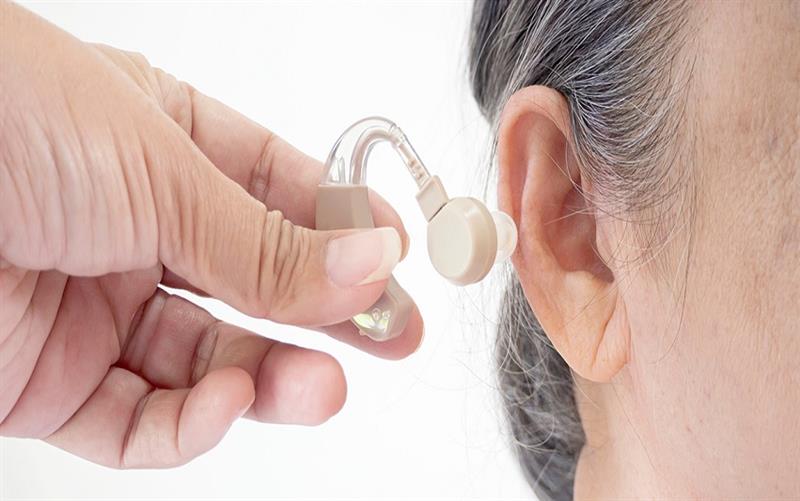
Hearing is one of our most vital senses, allowing us to connect with the world around us. However, many of us take our hearing for granted until issues arise. It is essential to preserve your hearing in order to keep your general health and wellbeing. A slow and frequently permanent disorder, hearing loss can have a major influence on many parts of your life. The only type of hearing loss that may be prevented is noise-induced hearing loss (NIHL). Long-term exposure to loud noises, such as that produced by machinery, concerts, or outdoor sports like shooting and hunting, can result in non-industrial hearing loss (NIHL).
Your ears are precious, and taking care of them is essential for a high quality of life. By following these ten tips, you can ensure that you "hear today, hear tomorrow." Prioritizing your ear health is a small but impactful investment in your overall well-being. Whether it's protecting your ears from loud noises, maintaining hygiene, or making healthy lifestyle choices, each step contributes to a lifetime of healthy hearing. In this article, we will explore ten valuable tips to maintain healthy ears and ensure that you can "hear today, hear tomorrow."
1 - Protect Your Ears
Loud noises can be damaging to your ears. Whether it's exposure to loud music, machinery, or even fireworks, it's crucial to protect your ears. Prolonged exposure to loud sounds can lead to hearing loss over time. Investing in quality ear protection, such as earmuffs or earplugs, when you're in noisy environments is vital. This simple step can prevent hearing loss in the long run. Additionally, consider reducing the volume of headphones and speakers to minimize the risk.
2 - Maintain Ear Hygiene
Cleanliness is essential for ear health. Earwax is the ear's natural defense against foreign particles and infection. While it's important to keep your ears clean, it's equally important not to insert anything into your ear canal. The use of cotton swabs can push earwax deeper, potentially causing blockages or injury. Instead, use a damp, warm cloth to clean the outer ear. If you suspect an earwax problem, consult a healthcare professional for safe removal.
3 - Say No to Cotton Swabs
Cotton swabs are commonly used for ear cleaning, but they can be harmful if not used correctly. Rather than removing earwax, they often push it further into the ear canal, potentially causing impactions or injury. Safer alternatives for ear cleaning include ear drops, which can soften earwax for easier removal. When in doubt, consult a healthcare provider for guidance on proper ear cleaning methods.
4 - Balanced Diet for Ear Health
What you eat can also impact your ear health. Nutrients like Omega-3 fatty acids, vitamins (especially A, C, and E), and minerals (like magnesium and zinc) play a vital role in maintaining healthy ears. These nutrients support the delicate structures of the inner ear and help protect against age-related hearing loss. Incorporate foods like fatty fish (salmon, mackerel), nuts, seeds, leafy greens, and fresh fruits into your diet to support ear function.
5 - Stay Hydrated
Dehydration can affect various aspects of your health, including your ears. The ear canal relies on moisture to function correctly, and lack of moisture can lead to irritation, itching, and discomfort. Staying adequately hydrated helps maintain the right moisture balance in your ear canal, promoting optimal ear health.
6 - Regular Check-ups
Regular ear check-ups are essential to catch any issues early. A healthcare professional can perform a thorough examination of your ears, checking for signs of infection, wax buildup, or other problems. Early detection is crucial because it allows for timely intervention, preventing more severe conditions that could lead to hearing loss.
7 - Earphones and Headphones
In today's world, we often use earphones and headphones for extended periods, whether for work, entertainment, or exercise. Be cautious with the volume, as excessive exposure to high sound levels can lead to irreversible hearing damage. To protect your hearing, consider the 60/60 rule: Listen at no more than 60% of the maximum volume for no more than 60 minutes at a time. Take breaks to allow your ears to recover. Additionally, invest in high-quality, noise-canceling headphones that can provide clear sound at lower volumes, reducing the risk of hearing damage.
8 - Avoid Ear Infections
Ear infections can be painful and damaging to your hearing. Common causes include moisture in the ear canal, especially if it's contaminated, or injury from foreign objects. To prevent ear infections, keep your ears dry, especially after swimming or showering. Avoid inserting foreign objects into your ears, as they can damage the delicate ear structures. If you experience symptoms of an ear infection, such as earache, discharge, or hearing loss, seek medical attention promptly.
9 - Manage Stress
Stress can have a surprising impact on your ears. High stress levels can lead to tension and affect your hearing. The exact mechanisms are not fully understood, but it's thought to be related to increased muscle tension and blood pressure changes. Practice stress management techniques like meditation, yoga, or regular exercise to keep stress levels in check. By managing stress, you not only support your overall well-being but also contribute to better ear health.
10 - Protect Your Ears in Water
Water in your ears, especially if it's contaminated, can lead to infections. Protect your ears while swimming by using earplugs specifically designed for this purpose. These earplugs create a waterproof seal to keep water out of your ear canals. If you swim frequently, investing in custom-fit earplugs from an audiologist is an excellent option. Additionally, tilt your head to allow water to drain out of your ears after swimming.
It's ideal to keep yourself as educated with your hearing aids and a new breakthrough in the technology. Ask your query via Book an Appointment today. For more information visit https://hearing.careinc.ca or you can call us today at (403)605-6300